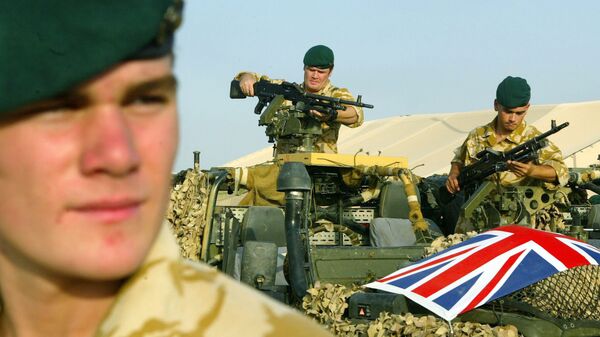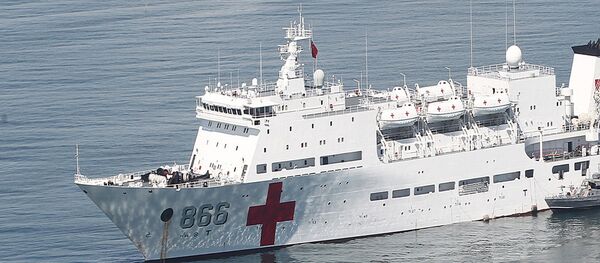Britain is the most influential power in Europe and second only to the US around the world, a report issued by the Henry Jackson Society think tank has concluded.
The report, which seeks to reject the "doom and gloom" surrounding Brexit, finds the UK remains a "leading" global power, and places it ahead of China, France, Germany, India, Japan and Russia in an "Audit of Geopolitical Capacity" — based on seven measures, including economics, technological prowess, military strength, cultural prestige, diplomatic leverage and demographics.
Today we've launched two major reports on #GlobalBritain post-#Brexit — you can read them both here https://t.co/kOSKC7AJK5
— HenryJacksonSociety (@HJS_Org) September 12, 2017
The US came top globally, and top in every category bar demographics, with the UK second, France third, China fourth, Germany fifth, India sixth, Japan seventh and Russia eighth.
"After Brexit, some are worried the UK is about to begin a period of economic and geopolitical decline — but this audit makes clear the UK is in a remarkably strong position. British military strength, technological prowess and cultural prestige [are] second only to the US. Even in relation to economic or diplomatic capacity, it is consistently in the top five. The lesson of this report is clear — our future is what we choose to make of it," the report's author, James Rogers, said.
#GlobalBritain 'declinism' is not preordained, but a choice. Preserving prestige through power is key, says @james_rogers #HJSEvents pic.twitter.com/kpstluWNWN
— HenryJacksonSociety (@HJS_Org) September 12, 2017
Based on the UK's "substantial resources and capabilities" and "means to extend them in many regions of the world," the country received a geopolitical score of 40.85 out of 100, largely due to Britain's high level of competence in diplomacy, security and "cultural prestige" such as global brands and appeal to tourists.
Diplomatic leverage was measured by adding up the number of embassies operated by a given country and by analyzing the strength of its security partnerships with international organisations, such as the UN Security Council.
Hard Beats Soft?
It is perhaps unsurprising that the UK ranks so highly on diplomacy — the Henry Jackson Society is far from the first organization to note the country's significant "soft power" capabilities. For instance, the Lowy Institute's 2016 Global Diplomacy Index, which ranks the diplomatic network of all 42 G20 and OECD nations, placed the UK within the top five globally, and the country came first in the World Economic Forum's 2015 "Soft Power 30" list.
However, questions arguably hover over the efficacy of diplomatic power if it is not backed by military strength — and cuts to the UK's military have provoked significant concerns in many quarters. For instance, in July UK army personnel statistics showed the number of fully trained soldiers had dropped below a "trained strength" target of 82,000 to 78,010 – a shortfall of 3,990 fully trained troops, and the lowest total since the 18th century, leading critics to suggest the UK faces a "potentially very, very dangerous crisis" as a result.
At the time, Colonel Richard Kemp, who headed British forces in Afghanistan in 2003, said he was "extremely worried" by the figures.
"It is a very dangerous economy to make. The current size of the Armed Forces is the most worrying I have ever known it to be. We are facing an increasing threat, while reducing our capacity to deal with it. It doesn't take a genius to see we, as a country, are in a very dangerous situation now. The level of instability around the world is increasing daily. We are denying ourselves the ability to protect ourselves or to deter those who pose very serious potential threats to us. We will pay for this in the end, as we did in the 1930s."
Colonel Kemp's views echoed the findings in January of the UK's own defense think tank, the Center for Historical Analysis and Conflict Research, which warned the UK was "effectively incapable" of launching an effective offensive against a belligerent foe, and must rely on NATO in any major military engagement.
In a paper based on consultation with both retired and serving military top brass, the Center concluded UK military capacity had been "hollowed out" to such a degree since 2010 the entire British fighting force could be wiped out "in an afternoon" in a major conflict.





